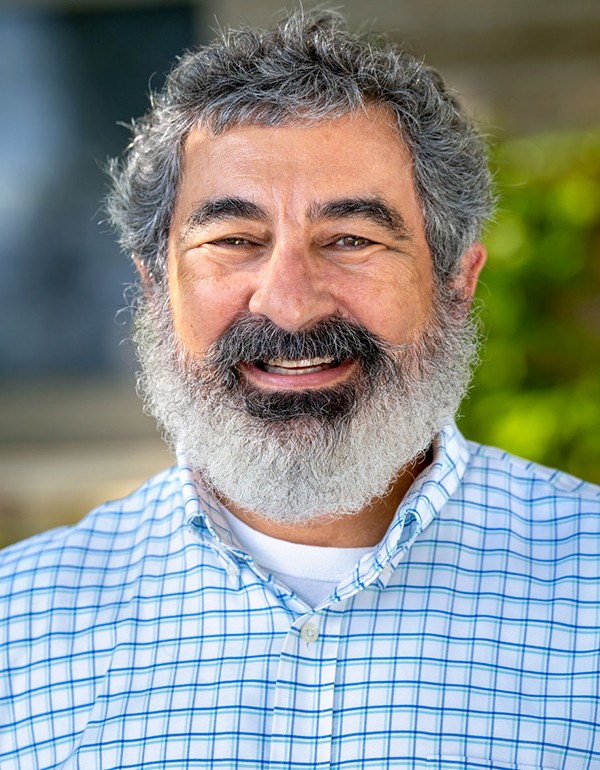Bruce Lewenstein appointed university ombudsman
By Tom Fleischman
For Bruce Lewenstein, the role of university ombudsman is not just an important and rewarding job – it’s something of a calling.
“I like being the person to connect others,” said Lewenstein, who served as student ombudsman during his senior year at the University of Chicago, in 1980. “When there’s an argument, almost always my instinct is to say, ‘Yeah, there’s something good on this side, and there’s something good on this side – can we find a way to make this work so that everybody feels that it’s a fair outcome?’”
Lewenstein, professor of science communication in both the College of Agriculture and Life Sciences (CALS) and the College of Arts and Sciences (A&S), will be Cornell’s 13th university ombudsman. The University Assembly voted to approve the appointment Jan. 25; Lewenstein’s renewable two-year term officially begins Feb. 1.
Lewenstein succeeds Charles Walcott, Ph.D. ’59, former dean of the faculty and professor emeritus of neurobiology and behavior, who held the position from 2011-21.
“Bruce Lewenstein’s many years of service across Cornell, and the perspective he’s gained as a faculty-elected member of the Board of Trustees, make him particularly well suited for this role,” President Martha E. Pollack said. “The Ombuds Search Advisory Committee was impressed with his vision, enthusiasm and experience. I’m confident that Bruce will excel, and very grateful to Charlie Walcott for his years of dedication to the office.”
The ombudsman – the word is derived from a Scandinavian word meaning “representative” – is available to all Cornell students, faculty and staff as a confidential resource where community members may discuss problems or issues within the university. The ombudsman does not advocate for one side or another, but promotes procedural fairness in the content and administration of Cornell’s practices, processes and policies.
As an informal resource, the ombudsman does not participate in any formal adjudicative or administrative procedures related to concerns brought to his or her attention. The Office of the University Ombudsman has a staff of three, including Linda Falkson ’86, the director, and Tracey Brant ’84, assistant ombudsman, both of whom are certified ombudsmen.
Lewenstein has been at Cornell since 1987, after receiving his Ph.D. in history and sociology of science from the University of Pennsylvania. He’s an authority on public communication of science and technology – how science and technology are reported to the public and how the public understands controversial scientific issues and emerging technologies such as biotechnology, nanotechnology and digital biology.
During his stint as student ombudsman at Chicago – as the result of three separate complaints lodged by students against professors – he helped write the school’s first sexual harassment policy. “They came to my office,” Lewenstein said, “because at that time, they didn’t know where else to go. I hope I had a reputation for listening to concerns about emotional and sensitive issues.”
Lewenstein got to know both Walcott and the late Walter Lynn, Walcott’s predecessor as ombudsman, shortly after his arrival at Cornell. Said Lewenstein: “I’ve been keeping my eye open for when Charlie decided to retire.”
In addition to his ability to bring differing sides together, Lewenstein said he has a somewhat unusual Cornell experience that he feels will serve him well.
“My primary appointment is in CALS, in communication, but I have a joint appointment in A&S, in science and technology studies,” he said. “That means that I actually get to see both the public and the private sides of Cornell in a way that most people don’t.”
Lewenstein has served as a faculty-elected member of the Board of Trustees (2016-20); chair of the Department of Science and Technology Studies (2014-21); and visiting professor at the Graduate University of the Chinese Academy of Sciences in Beijing (2010-12). He was elected a fellow of the American Association for the Advancement of Science in 2002.
The Office of the University Ombudsman is at 118 Stimson Hall, on Feeney Way between Day Hall and Goldwin Smith Hall. All conversations are confidential; email the office at ombudsman@cornell.edu or call (607) 255-4321.
Media Contact
Get Cornell news delivered right to your inbox.
Subscribe

